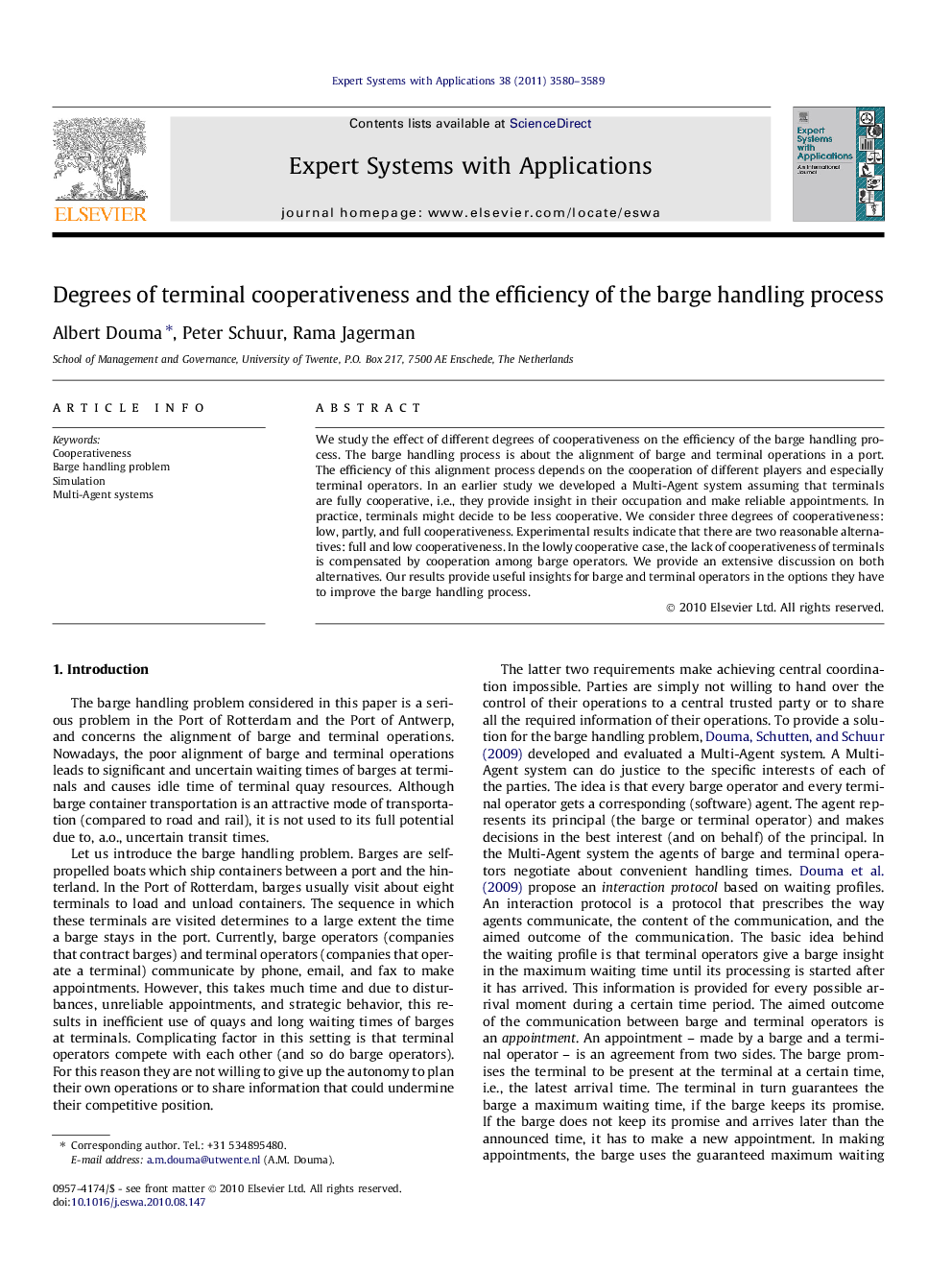| Article ID | Journal | Published Year | Pages | File Type |
|---|---|---|---|---|
| 386017 | Expert Systems with Applications | 2011 | 10 Pages |
We study the effect of different degrees of cooperativeness on the efficiency of the barge handling process. The barge handling process is about the alignment of barge and terminal operations in a port. The efficiency of this alignment process depends on the cooperation of different players and especially terminal operators. In an earlier study we developed a Multi-Agent system assuming that terminals are fully cooperative, i.e., they provide insight in their occupation and make reliable appointments. In practice, terminals might decide to be less cooperative. We consider three degrees of cooperativeness: low, partly, and full cooperativeness. Experimental results indicate that there are two reasonable alternatives: full and low cooperativeness. In the lowly cooperative case, the lack of cooperativeness of terminals is compensated by cooperation among barge operators. We provide an extensive discussion on both alternatives. Our results provide useful insights for barge and terminal operators in the options they have to improve the barge handling process.
Research highlights► Barge and terminal operators have to align their container (un)loading operations in the port. ► Efficiency of the alignment process depends in particular on the cooperation of terminal operators. ► Three ‘degrees of cooperativeness’ are evaluated. ► A reasonable alternative for full cooperativeness is low cooperativeness where the latter is compensated by cooperation among barge operators. ► An extensive discussion on the various degrees of cooperativeness is provided.
